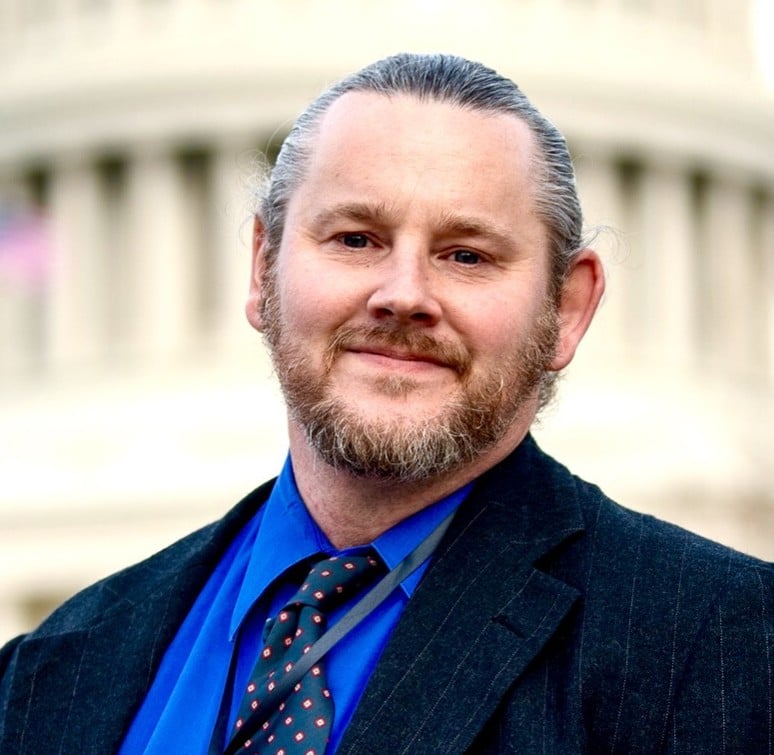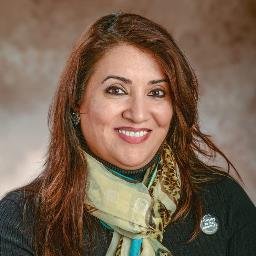S2E13 / Religion, Responsibility, Blame & Shame / Bill Kinkle, Farha Abassi, Father Luis Barrios, Hanna Pickard, Kayla Kalel, Pastor Steve Gallimore
Is drug use immoral? Can religious leaders and communities help people recover from addiction? And can we hold people responsible without blame and shame?
Note: This season of American Diagnosis was originally published under the title In Sickness & In Health.
This podcast was created by Just Human Productions. We’re powered and distributed by Simplecast. We’re supported, in part, by listeners like you.
Steve Gallimore: It’s one thing for us to sit back and piously say “oh, you just need Jesus.” Well, what does that mean? I mean, what does that even look like to a person who’s struggling to get from one fix to the next? What, how does that help them?
Celine Gounder: That’s Steve Gallimore. He’s the founding pastor of Tennessee Valley Community Church. Though Steve was never addicted to drugs, he drank heavily as a young man.
Steve Gallimore: Puryear, Tennessee where I grew up… back in the day, was literally known as the… honky tonk capital of the world. We had more honky tonks, more bars per capita than anyplace… We didn’t have all of the opioids that we have now. They weren’t prescribed like that then. … So we dealt with pain a lot differently obviously than what is done now. And so that’s the one way that this community is changed, that’s changed tremendously. We’ve got to fix that somehow.
Celine Gounder: Today, Steve emphasizes empathy and a welcoming spirit in his ministry. No matter what you’ve been through or what struggles with drugs you’ve had, all are welcome at his church.
Steve Gallimore: I tell our folks all the time that we are a bunch of misfits that fit. … And, if it weren’t for the grace of God and the sacrifice of Christ… none of us would have hope. And that’s what we preach and that’s what we teach. But then we show people a better way. And we put practical steps to that… Every week it’s: “OK, what do we do with what we just heard? What’s your next step? How are you going to be different? What will our church do? Where will we go from here?”
Celine Gounder: Welcome back to “In Sickness and in Health,” a podcast about health and social justice. I’m Dr. Celine Gounder. In this series, we’ve delved into the many different facets of the opioid overdose epidemic: how the history of race in our country influenced drug policy, the roots of drug addiction, and even if we can sue our way out of the crisis. But, there’s one thread we haven’t really talked about yet: right, wrong, morality, and religion. For many, faith-based and 12-step programs are an important tool for breaking out of addiction. They provide community, a sense of hope, and a structured program that is there for people literally every step of the way. But for others, faith has been a contentious part of their life, and when they were seeking help for their addiction, they were turned away by the Church or they were turned off by the Church’s assumption that their drug use was a moral failing. In this episode, we’re going to look at how spirituality and faith-based programs can help or hurt those suffering with addiction, and we’ll ask what has the role of blame and shame been in these programs, and what new solutions are religious communities are offering to turn Churches from a place of shame and stigmatization to a place of community, acceptance and love.
Kayla Kalel: I’m Kayla Kalel. I am in long-term recovery from substance use disorder.
Celine Gounder: Kayla is a student at the University of Maine at Augusta. She volunteers for an organization called Young People in Recovery, which advocates for people in or seeking recovery from substance use disorder. Kayla got her first taste of opioids after she got into a car accident, when she was 15.
Kayla Kalel: I was, kind of, a typical high school kid, curious about different things. … I went to a couple of college parties at that age. I was like 15. And, I got into a pretty bad accident driving home from a college party. I wasn’t driving. My friend was driving. But… that led to me being prescribed low doses of prescriptions. It was like Perc five and muscle relaxers. That’s when I was introduced to the whole harder drug type deal… When I was prescribed that, I kind of was like, “Wow, this is really a good feeling. I like this a lot.”
Celine Gounder: Kayla started dating a guy who was involved in a harder drug scene, and this opened the door to friends who used and more drug use.
Kayla Kalel: It was basically one of those deals where I was trying to get the regular prescription drugs that I was used to getting, and somebody said, “Well, I can’t get that, but I can get heroin. It’s a lot cheaper, and you’ll get just as high, and whatever.” So, tat was appealing to me. That just led me down a whole rabbit hole, pretty much up until the point of getting arrested, I consistently was using heroin.
Celine Gounder: In her late teens and early 20s, Kayla was in and out of drug courts and eventually got jail time. She tried detox a few different times and did inpatient rehab. Although she made many attempts, she was having trouble staying clean.
Kayla Kalel: For me… I kinda like had tried recovery several times, and people in my life were getting sick of hearing about it. They were like, “Okay, you’ve said that a lot, and we don’t believe you anymore. You got to show us.” Trust had been broken.
Celine Gounder: It was at that point that Kayla returned to her religious roots.
Kayla Kalel: Well, I grew up in a Christian home. At a young age I had a relationship within the church. And I sort of, kind of went away from that while I was using, but I was able to fall back on it when I was in prison; and then when I started AA and NA, I very, very quickly was able to establish my higher power because I had already believed that my whole life.
Celine Gounder: In 12-step programs, there are twelve specific steps that every person must follow. The first step is an admission of powerlessness over alcohol or other drugs, the second is a belief in a “Power greater than ourselves that could restore us to sanity,” and the third step is a decision and will to surrender to God. The rest of the steps involve taking a moral inventory, making amends to those you have harmed, and asking God to remove your “defects of character.” For Kayla… 12-step programs are all about taking responsibility for your actions.
Kayla Kalel: …There is so much freedom in them, because you sort of stop blaming other people for whatever your problems are. Regardless of how other people have treated you, or how you’ve been wronged, you look at your part and everything, which is awesome, because it gives you the power back. When you have problems and you think that it’s other people’s fault, it’s like you can’t do anything about it at that point. But when you look at the situation and see where your part of it was, then you can do something about it, and not allow it to happen again or whatever that looks like for you.
Celine Gounder: Kayla continues to advocate for 12-step programs and has found a lot of meaning in helping others through the recovery process.
Kayla Kalel: Pretty much any time that I’m able to use my negative experiences, to perhaps advocate for somebody else or make somebody else feel like recovery is possible or in any way help somebody else, then it sort of seems a little bit more worth it to me. … And I always think of that whenever I try to get discouraged, because sometimes I always think, “Oh gosh, I wasted 10 years of my life, living that life.” then I think, “You know what, God promises us that He is going to make something beautiful out of all that.”
Celine Gounder: But, faith-based 12-step programs don’t always sit well with everyone.
Bill Kinkel: My name is Bill Kinkel. I am a paramedic and a registered nurse, but I am also a person in recovery from opioid addiction.
Celine Gounder: In 2008, Bill went through a divorce. For the first time in his life, he became severely depressed. Working in the ICU, Bill was routinely giving pain meds to people, and often kept a vial handy in his pocket while on shift. One evening after work, he realized he had mistakenly left the hospital with a vial of opioids in his pocket. This particular evening, he decided to dose himself.
Bill Kinkle: I tried these opioids intravenously and that immediately solved my depression issue. It didn’t make me happy, but I wasn’t sad. I felt very neutral, and I felt functional again in my life. And that quickly became a daily routine of using opioids, and within about a month, I found street heroin. And then from there, everything really just took off. It only took me about six or seven months once I started using IV drugs until I had lost my job, house, cars, all my possessions, and I was living homeless in Philadelphia. Just completely lost everything pretty quickly.
Celine Gounder: At his first treatment center, Bill encountered 12-step.
Bill Kinkle: 10 years ago when I went to my very first treatment center, and I remember not wanting to be a part of it, and I just couldn’t make sense of all this. It just seemed very abstract to me, this God of your understanding, this spiritual approach to something that people were telling you is a disease and a medical problem. As a medical provider, I could understand a support system in the faith community, but I couldn’t understand a primary treatment being prayer. And so, it really bothered me, and at the time I was a pretty hardcore atheist. I was actually discharged from my very first treatment center because I just refused to believe in God and told them I couldn’t do that. They discharged me and said they couldn’t help me. That didn’t really help much.
Celine Gounder: Just like Kayla, Bill went in and out of treatment for many years… and as the years went on, he became more and more critical of 12-step programs.
Bill Kinkle: What was interesting is every treatment program… their primary mode of treatment has been 12-step programs… Nothing… if there was an alternative, it was mentioned in passing… There’s a saying that you hear all the time in the recovery community that the definition of insanity is doing the same thing over and over again, expecting a different result, and I kind of apply that to the way that we do treatment. … We put everybody in the same process and it doesn’t work for everybody. It does work for some, and there’s thousands who have gotten sober and gotten into recovery through 12-step programs, but there are a lot more people out there that just can’t do it and can’t make sense of it.
Celine Gounder: And Bill’s questions about faith only multiplied later on his recovery. After years of being drug-free, he relapsed and found himself back in severe addiction. He turned to his church for help.
Bill Kinkle: My wife and I were really open about it and spoke to a lot of people in the Church asking for help, and we just just didn’t really get help. We were sort of left on our own and kind of forgotten and… for me, it was really the bigger questions about the Christian faith and what’s supposed to happen in that faith. And so, I got really frustrated.
Celine Gounder: Bill became increasingly interested in the science behind addiction.
Bill Kinkle: Now that I understand my own substance use disorder as a treatable illness and that there’s a lot of good scientific reasons for it. It’s not a sin problem. It’s not a character flaw. I’m not a morally corrupt person. That it is a real condition that needs treatment. That has been a lot more helpful for me in my life than trying to pray it away.
Celine Gounder: Although Bill has a lot of issues with 12-step programs, certain aspects have really helped him along in his recovery.
Bill Kinkle: I have a lot of criticisms of 12 step programs. I think there’s a lot of things that need to change and things that could be done better, but at the same time, I don’t think that I would be where I am today without my 12-step group and the fellowship of people that are in it. I don’t really go to these meetings anymore because I’m trying to stay in recovery. … I go there much more because of the social aspect and because of the support group. I don’t see it as treatment, I see it as a support group.
Celine Gounder: In other words, Bill doesn’t go to 12-step programs for the religion… he goes there for the community, the support and the relationships he’s made there. This search for community… has led Bill to something called SMART Recovery… In many ways… it’s very similar to a 12-step program… but unlike AA or NA, SMART Recovery is secular.
Bill Kinkle: It’s for people that are atheist and agnostic that just want more of a scientific approach to 12-step programs. …And what I like about SMART is they have… usually weekly meetings.. but their meetings… they have a facilitator in each meeting. So, to be a facilitator, you have to go through a six-week training program of basically how to run groups and how to be a facilitator. It’s much more based on cognitive behavioral therapy and motivational interviewing and a lot of just mental health techniques, like counseling techniques, is what they’re based on.
Celine Gounder: SMART is also different from AA because it doesn’t use self identifying labels.
Bill Kinkle: You don’t have to sit there and say, “Hi, my name is Bill, and I’m an addict,” or, “My name is Bill, and I’m an alcoholic.” I’ve really mixed feelings about that.… But with SMART they just don’t do that.. My name is Bill. I’m Bill, and I’m just a guy that could use some help. Because my period of drug use in my life and my run with opioid use disorder, that’s not a defining thing for my life. It’s not who I am. That’s just something that happened to me and is a part of it, but it’s not who I am. I don’t use that as an identifier. My identifier’s Bill.
Celine Gounder: For Bill, although 12-step programs may not explicitly shame people… he believes shame and judgement are built into the program.
Bill Kinkle: The way that we’ve chosen to treat it, as a bunch of people that we don’t know their last name, they’re anonymous people… of course, nobody wants to talk about it and think it’s something to be ashamed of… We don’t even want to share our last name. The only part of our name that we’ll share is our first name and last initial. And that speaks highly, in my opinion, of shame. …So I think stigma runs deep and … The 12 steps even talks about it being a moral problem. On one end they talk about it being an illness, but in the steps themselves, they say you would take a moral inventory of yourself. So there are hints that this is an ethical issue, an issue of morals.
Celine Gounder: Some like Steve, who we heard from at the very top of the episode, are steeped in religion and faith, but are also very critical of 12-step programs.
Steve Gallimore: I’m Steve Gallimore, and I’m Senior and founding pastor of Tennessee Valley Community Church. … Our goal and vision has always been to reach those who didn’t fit in other places. …it’s not that they don’t love Jesus or that they’re not Christians, but they just fit the category of what we call “de-churched.” Something has happened in their life and religion and their life didn’t mix for a while, and then they just don’t feel the freedom to go back in. … Sometimes religion can do that to them. Sometimes it’s what they do to themselves. But because of… one or the other… either the way they see themselves, in the light of the Church, or the way the Church sees them in light of something they’ve done, and they don’t fit anymore. So that’s been our vision… to reach the “un-churched” and the “de-churched” with the gospel of Christ.
Celine Gounder: For Steve, the language of AA and NA is very limiting and cuts off an individual’s potential.
Steve Gallimore: …we’ve literally heaped condemnation on a person, to the point that they… have any hope… they don’t feel like there’s an out for them… of where they can get better. So we literally shut down their opportunity for getting the help they need because of the shame that we placed on them… And don’t really believe… we say, “Hi, I’m Steve, I’m an alcoholic.” No, that’s not who you are. That’s what you did. And that’s the difference. And so, if I go to an AA program, and “Hi, I’m Steve, and I suffer with alcohol addiction.” Well, you just told me who you were. You just defined yourself by what you did. And I totally reject that notion.
Celine Gounder: For Steve, the path to recovery isn’t about judgement and shame. It’s about relationships and community.
Steve Gallimore: I really don’t know how we can do it other than relationally. People need people, and people need someone to talk to. Youth need someone in their youth group that they look up to, that they can sit down and talk with, and that they can open their souls to… where they, they won’t feel judged. And I think that’s the key is starting early and helping them to deal with this before they hit adulthood so that they can have a way of handling it before it ever begins.
Celine Gounder: Steve believes church should be a place of hope, where all feel welcome.
Steve Gallimore: “I’m a chief of sinners.” And, see, if we ever forget that… then we’ll start having “church,” and we’ll start being “churchy,” and we’ll start doing all the stuff except the one thing that Jesus tells to do, and that is to go to the, to the highways and the hedges, and to propel them to come in, so that his house will be full. … And so the Church being the Church… Christians being Christians… and people really living out their faith. To me, that’s the only antidote that we really have. … We’re going to be a Church that’s that’s literally open, and inviting, and bringing people in so they can experience who God is in a real and tangible way.
Celine Gounder: Other religious leaders believe in being open and welcoming too, and they do this not just by inviting people into their church, but by going out into the community.
Luis Barrios: My name is Luis Barrios. I’m the priest in charge of the Holyrood Santa Cruz Church in the Upper West Side Manhattan.
Celine Gounder: For Luis, community and the Church’s connection to it is at the crux of his religious work. Luis, who established one of the first needle exchanges in New York City, has been a vocal advocate and activist, and has been arrested countless times for civil disobedience.
Luis Barrios: I think the Church need to stop talking less about Heaven and talk more about Community. …you have a community that is overcrowded. You have a community with an incredible percent of unemployment. We have a community with incredible number of undocumented people. …So what is the church responsibility? ..41:29 If people do not have a place to stay, why I need to tell people to come to the church to worship God? … Jesus was never inside the church. He was always in the street, hanging around with people, becoming aware of people’s needs, and producing a solution.
Celine Gounder: Luis believes that religion’s preoccupation with morality gets in the way of helping communities.
Luis Barrios: …We are extremely moralistic here in the U.S., in a way that we don’t care about people’s lives, and we get into these moral issue that there is nothing related to human rights. It’s just morality that is disconnected from the quality of life of people.
Celine Gounder: For Luis, addiction and drug use are connected to larger social problems, collective problems that face our society, like poverty and homelessness. He doesn’t see it as being an individual problem.
Luis Barrios: I believe there is interaction between the person and the environment. The person can impact from a negative perspective or positive the environment, but also the environment can do the same to the person… This is one of the biggest issues that we have when we get people out of their rehabilitation program. Because in a rehabilitation program, we create a artificial environment. You have the three meals. You have a bed. You have very protective support environment, and after three or four months, we send you back to the community. What community? You don’t have a job. Do you have a place to stay? … So, people relapse. So, it’s a combination of the personal and also the interpersonal with the collectivity. So you have to address all these factors. If not, you’re going to end blaming the victims.
Celine Gounder: Of course, Christians aren’t the only ones affected by the opioid overdose crisis in this country. We all are.
Farha Abbasi: We did a preliminary study with Imams: “Do you know, or what do you understand of opiates? Do you know of somebody who has overdosed? And, or know somebody who is using?” And actually the numbers were pretty high. Again, if I compare it to outside the community, the numbers might look smaller at this point, because of the stigma, shame. So even if somebody is dying of overdose, are they admitting it? Are they openly talking about it?
Celine Gounder: This is Farha Abbasi. She’s an assistant professor of psychiatry at Michigan State University, the founder of the Muslim Mental Health Conference, and the managing editor of the Journal of Muslim Mental Health. Farha provides training to Imams on mental health and addiction.
Farha Abbasi: …We offer training, and we’re very focused on developing faith leaders. The role of faith leaders, like we did substance abuse training for faith leaders, we did the basic mental health training, we did trauma-informed congregation with human and health services. … The essence of it is that, instead of thinking like, what is wrong with you, you think in terms of what wrong happened to you. So, that’s the basis of trauma-informed care and trauma-informed congregation initiative…
Celine Gounder: Cooperation with local Imams has proven important in a culture where people see doctors for physical ailments, but turn first to faith leaders when they’re having a mental health crisis.
Farha Abbasi: … the concept that we are giving to the faith leaders is that we are not introducing something new. You already are doing mental health, you just need to know and augment your skills around it. So we had to dispel a lot of stigma, but it’s a natural alliance, and I see that in other faith practices as well that we just have to reframe what we are doing in terms of mental health. … That’s why we did the opiate awareness training with Imams and gave them very clear signs, symptoms, treatments… so that, I think, whenever we make something visible, whenever we talk about things, whenever we start having a dialogue and start communicating about something, somehow that breaks the barrier.
Celine Gounder: Helping Imams understand the problem… and giving them tools and resources… and people in the community they can collaborate with… has helped destigmatize addiction… and empowered them to help.
Farha Abbasi: … Now we have this whole kind of an alliance between mental health professionals and faith leaders, and we constantly refer to each other. I can give you example of my local Imam here in East Lansing. … if I feel I am seeing someone that would be helped by extra prayers and needs that spiritual and faith support, I’ll reach out to the Imam and talk to him, and send my patient to them. … I think the more we are talking to Imams, and Imams are talking to us, we have developed really good collaborative models. We are not fully there, but at least we are moving forward.
Celine Gounder: Judgement, shame and blame — these are themes that came up again and again in conversation with Pastor Steve Gallimore, Father Luis Barrios and Dr. Farha Abbasi, as well as other faith leaders I’ve spoken to, and how these barriers can make it difficult for people suffering with addiction, to access the help some religious communities could offer.
Hanna Pickard: My name’s Hanna Pickard. I’m a Professor of Philosophy at the University of Birmingham and a visiting research fellow at Princeton’s program in cognitive science.
Celine Gounder: In her research, Hanna explores philosophical questions that arise out of her clinical practice. She spent much of the past decade working in a therapeutic community with people with long-term, complicated mental health problems. She spent a lot of that time focused on addiction.
Hanna Pickard: …when I started working clinically, I understood “responsibility without blame” as this middle ground, which allowed you to escape something I called the “rescue-blame trap.” … In blame mode we acknowledge somebody had a choice, but because of that, we see them as responsible, and blame, and end up being quite critical and condemnatory… especially if you’re working clinically, it’s not what the clinical role is about. You’re supposed to be caring for someone, so you swing to the opposite side, and instead go into rescue stance, and in rescue stance you avoid blame, but you do that by denying that somebody had choice.
Hanna Pickard: …So you really disempower them as an individual. …neither is clinically effective.
Celine Gounder: And this actually brings us around full circle to the beginning of this season, when we asked whether addiction is a brain disease or a moral failing. The rescue-blame trap that Hanna talks about, this very much parallels this binary way of thinking — morality versus disease and the traditional law enforcement versus medical dichotomy. But could there be another way? In Hanna’s mind, this idea of responsibility could represent a middle ground.
Hanna Pickard: …it’s forward looking in the sense that you use the idea of responsibility in order to help people change, empower them to do things differently. So the point of talking about responsibility, of holding somebody to account, has to do with what that might achieve in the future. That’s very different from punishing, blaming ideas of responsibility, the kind of responsibility that the phrase “just deserts” typically evokes, which is backwards looking. It’s not about the future. It’s about payback for something somebody’s done. It’s retaliatory. So when you go in for that kind of punishing, blaming responsibility you’re doing it because you think someone deserves to suffer.
Celine Gounder: But, Hanna argues, there’s more to justice than punishment and making sure someone gets their “just deserts.”
Hanna Pickard: … We love to point the finger and punish for wrongdoing, but there are other elements of justice, too, which are really important like rehabilitation, reintegration, fairness, equality. We tend to push those to the side and just get focused on just deserts and blame. And I guess the question we need to ask ourselves as a society is why? Why do we sideline these other important elements of justice and just think about giving people their “just deserts”?
Celine Gounder: But if blaming and shaming don’t really work, don’t act as deterrents, don’t help get people on the road to recovery — why do we do it?
Hanna Pickard: …I think there are lots of different reasons but one of them has to do with the way it’s a way of venting or expressing our own anger. Another has to do with the way it saves us from looking at our own responsibility for social problems because if someone else is to blame, if that’s where the fault lies, then we don’t have to turn our attention to any role that we might play in a situation.
Celine Gounder: For Hanna, responsibility lies not only with the individual, but also with the larger community.
Hanna Pickard: So I think we do have a responsibility to help people. …my view is that as a State… we have a responsibility to provide public health services both for people’s physical problems and for people’s mental problems. So, I really do think we have a responsibility to help… [00:39:22] People who are addicts suffer terribly. They live destitute and miserable lives. … Do we really want to be the kind of society that just stands by and does nothing while someone is in that state? I hope not.
Celine Gounder: Hanna also believes… not only that it’s a responsibility to help people, but also that we have a part in why people are addicted in the first place, and that we too must be held accountable.
Hanna Pickard: I think… where we’re working with people from socioeconomically disadvantaged backgrounds or who are underprivileged or discriminated against in other ways, we have to ask whether we as a society have some responsibility for their position, and often the answer is: yes, we do. So just the way we may think it’s appropriate to hold them responsible for their actions, it’s appropriate for us to hold ourselves responsible for our part in their disadvantage, which contributes to the choices they make.
Celine Gounder: So perhaps… the way to think about addiction is that it’s a social disease, for which we all need to take responsibility. And that community is at the root of the problem, and at the heart of the solution. By avoiding labels and by avoiding shame and blame, perhaps 12-step programs like AA and NA and religious communities have the potential to offer the support, acceptance and understanding people need to get better. And if they can, don’t they have a responsibility to do so?
Celine Gounder: Our next series is going to tackle one of the most polarizing public health issues in the nation today: gun violence. Just as we’ve done in Season 2, we’re going to dig deep and go beyond the headlines and sound bites. We’ll hear from a range of experts including public health researchers, veterans, law enforcement officials and survivors. We’ll learn about how culture and the culture wars drive our attitudes about guns, what guns are for and what they mean to different people, what really drives gun deaths, and, of course, we’re going to take a look at some of the solutions that can help save lives. As with the opioid overdose epidemic, much of our thinking about gun violence is binary. We’ve framed the issue in terms of gun rights versus gun control, and yet, is there a middle ground? another way? That’ll be on Season 3 of “In Sickness and in Health,” coming to you this fall.
Celine Gounder: Today’s episode of “In Sickness and in Health” was produced by Nora Ritchie and me. Our theme music is by Allan Vest. You can learn more about this podcast and how to engage with us on social media at insicknessandinhealthpodcast.com, that’s insicknessandinhealthpodcast.com. If you like what you hear, please leave us a review on Apple Podcasts. It helps more people find out about the show!
Celine Gounder: If you or a loved one needs help, you can reach out anonymously and confidentially to SAMHSA’s National Helpline at 1-800-662-HELP, that’s 800-662-4357. SAMHSA stands for Substance Abuse and Mental Health Services Administration. You can also find information online at www.findtreatment.samhsa.gov, that’s www.findtreatment.samhsa.gov.
Celine Gounder: I’m Dr. Celine Gounder. This is “In Sickness and in Health.”
Guests
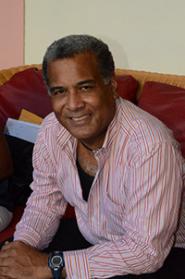 Father Luis Barrios
Father Luis Barrios
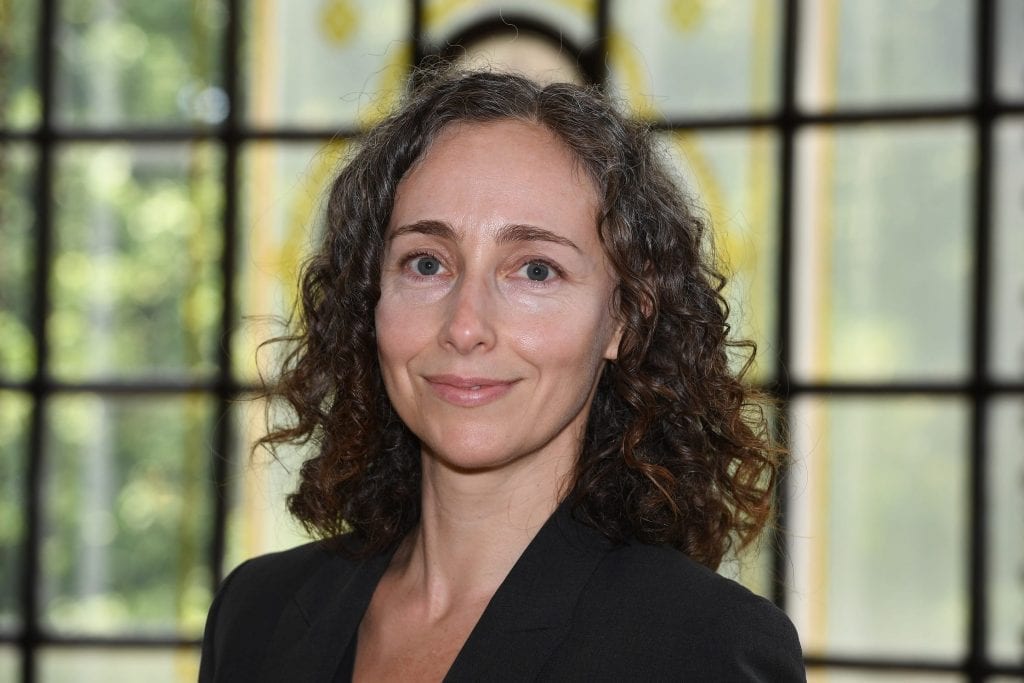 Hanna Pickard
Hanna Pickard
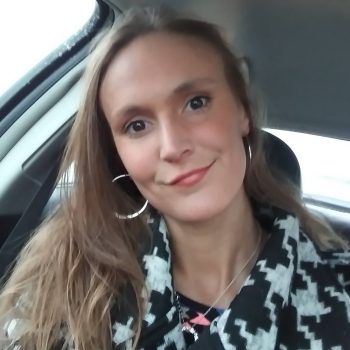 Kayla Kalel
Kayla Kalel
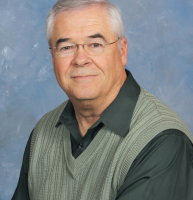 Pastor Steve Gallimore
Pastor Steve Gallimore




